COVER STORY
A NATION ON EDGE
CAN WE RUN A NEW RACE ?
Wijith DeChickera wonders how Sri Lanka can make the most of its democratic heritage and believes there has to be a major paradigm shift in the state of politics
Demonstrably South Asia’s oldest democracy with an extra feather in its cap by virtue of universal franchise as early as in 1931. Arguably the most embattled republic in the region – beleaguered by civil war, and insurgencies and insurrections, in 71 years of independence.
Between the extremes of great potential as a democratic republic and grievous pain for its people, our island race taken as a whole – for that is how we’re best taken – has swung like a chronic pendulum.
CHEQUERED CAREER But the most recent episode in our country’s chequered career might well be its most egregious to date. It was the best of times; it was the worst of times.
On the one hand, an unlikely coalition between neoliberal neoconservatives and a stalwart from the previous authoritarian regime in an increasingly turbulent marriage of convenience to stave off the return of an erstwhile antidemocratic ethos.
And on the other, rabble-rousing chauvinists in opposition snapping at the heels of a divided house in wars of attrition to undermine the reform agenda.
Then the so-called stalwart (can the leopard change its spots?) pulled the pin. Sri Lanka juggled the live grenade for some seven weeks.
MIND-BOGGLING COST A president who arbitrarily sacks one prime minister and appoints another… one who was his former president. And he not only precipitately prorogued parliament but also refused to heed a series of ‘floor tests’ to discern the will of a majority in the legislature. A hooligan house in chaos with a visibly tired speaker battling on! The jury was out until 13 December when the Supreme Court ruled that the dissolution of parliament was unconstitutional.
Of course, the cost to a sitting pretty island nation’s image, constitutionalism and economy has been mind-boggling to say the least.
The West wept over us openly while covertly agitating for a stable government. A rising Eastern powerhouse looked set to slush fund another former beauty into its ‘string of pearls.’ To the north, Big Brother was watching us – ominously silent and wondering whether the teardrop isle of the Indian Ocean will have the fortitude to opt for the route taken by the Maldives vis-à-vis China or go ballistic like Gwadar in troubled Baluchistan in Pakistan.
Be these global political ramifications as they may, the economic picture is pretty bleak too. The rupee plummeted to a new record low and losses in investment have been estimated at Rs. 30 billion. And Moody’s pointedly lowered Sri Lanka’s country rating for the first time since 2010.
In addition to the US, Japan and IMF suspending aid or funding pending further clarity of the political situation, there’s the lamentable injury to the ‘prettiest girl on the beach.’
In 2019, Lonely Planet said, our blessed isle would not only be the best but the most beautiful place to be. No longer. We can kiss that touristic holiday goodbye. Until? Unless! Until the president suspends naked ambition and settles for being a one-term executive who will then possibly be remembered more kindly by posterity than now.
COMPROMISED HOUSE And a former president can content himself with passing on his legacy to his scions in their due time and not prematurely by dint of a coup. Plus a compromised house can set its affairs in order through a host of reforms much needed in our parliamentary system. In addition to which, the supposedly sea-green incorruptible previously ousted and now reappointed premier needs to make way for the next generation.
FIVE ESTATES (NOT THREE OR FOUR)In a liberal democracy, there are three recognised arms of government. First, the legislature (parliament) where laws pertaining to the land are mooted and debated inter alia. Then the judiciary, which interprets those laws and makes rulings on how to interpret them. And last but not least, the executive – including both government and opposition – that shapes policy to practically implement laws made and passed. There is a fourth estate – the free media – that traditionally plays the role of watchdog, critic and commentator: reporting news and recommending correctives in response to the three arms of house, court and state. However, in nearly 71 years since independence, the press – and now new media – has swung between blatant compromise with the powers that be and craven opportunism in pursuit of their own agendas from business to politics. Therefore, it is high time for a fifth column… A broad association of institutions and establishments to begin critically engaging the four estates of our democratic ‘socialist’ republic. Eschewing all partisan affiliations, this segment of the body politic must start building values, norms and mores from the bottom up – where a top-down approach appears to have failed. Therefore, it is imperative that the fabric of society accommodate the warp of media and woof of civil society. This might be the last bastion against the fall of night whereby authoritarian antidemocratic forces threaten to rape the republic. |
FAMILY ET AL TO THE FOREIn our country, politicians have often unconscionably fallen back on the conventional wisdom that ‘the voice of the people is the voice of god.’ This has led, time and again unfortunately, to unscrupulous political parties sans a genuinely pluralist ethic hijacking the people’s will. The majoritarian politics that results is an environment where nationalism, jingoism, chauvinism and a host of other nasty ‘isms’ can flourish – to the national detriment. As a future safeguard against such a despicable exceptionalism or ethnic particularity, it is incumbent on civil folk to start re-envisioning a whole new Sri Lanka. If only thought and opinion shapers from the liberal and moderate segments of society would unite in a concerted effort, we can aspire to tear down strongholds, and build new bases and bridges to span the gap between classes of people, perceived divisors such as caste and creed, and communal exclusivity. Such inclusion would result in a brand-new modernist and plural nation state. To do this effectively, liberal legislators as much as more moderate elements of the executive must reach out to educators, influencers and leaders of diverse communities, to shape a truly pluralistic and inclusive society. Such a brave new world would enjoy ethnic, cultural and religious pluralism. But it must also begin to privilege the positive influences of family and other associational institutions in civil society. As long as these are fair, balanced, impartial, non-partisan, normative from human and civilisation perspectives, and above all law-abiding. |
DEMOCRACY ON EDGE
Political turmoil has rocked the nation since 26 October against a backdrop of multiple presidential decrees, U-turns, rowdy scenes in parliament, political horse-trading… and popular protests – so much for ‘So Sri Lanka’!
On that fateful day of 26 October 2018 – yes, a Friday – came the news that Sri Lanka’s executive president had deposed the incumbent prime minister and appointed a new premier (a onetime political ally turned foe no less). And a day later, the president announced that parliament would be prorogued.
To say all of this came as a shock to the citizenry would be an understatement like no other. Moreover, for the first time in its history, Sri Lanka grabbed the international headlines for having not one but two prime ministers at the same time!
While instigating political turmoil and drawing international criticism, the move resulted in Ranil Wickremesinghe, who claimed a majority in parliament, and opposition parties refusing to recognise Mahinda Rajapaksa as prime minister – and insisting that President Maithripala Sirisena’s actions were unconstitutional.
Having formed a new cabinet of ministers with Rajapaksa that was hotly contested in the house, the president dissolved parliament on 9 November, which led to the United National Party (UNP) declaring the move as being unconstitutional. Subsequently, with submissions made by both sides of the political divide, the Supreme Court stayed the president’s dissolution until 7 December – and ruled that it was unconstitutional, five days later.
But this was by no means the end of the saga that some have called a ‘bloodless coup’ and others used as a rallying cry to ‘let them vote.’
We’ve also witnessed the trashing of parliament involving brute force, a butter knife (or a letter opener, depending on whom you ask), and a concoction of chilli powder and water (or a carbonated beverage, in the words of others) literally being thrown into the mix – in addition to a host of other similarly unsavoury behaviours unbefitting of that most hallowed house designed by the highly respected local architect Geoffrey Bawa – he must surely be turning in his grave.
At the same time, there is a sense that more members of society at large are taking a closer look at the constitution and its stipulations vis-à-vis who calls the shots in the highest echelons of power.
And as witnessed by the spontaneous protests that erupted in Colombo and elsewhere in and around the island, the people seem to be making their voices heard – on the streets, across media channels – including the online world where such have been both loud and clear – and in everyday discussions.
For far too long, democracy in Sri Lanka has been an excuse for a mere vote buying exercise. Perhaps now, with the changes on the ground, we may all realise the impact of our words and actions on the governance of the nation that we call ‘home.’
Only time will tell.
– LMD
ONLINE REACTIONSLMD’s Facebook page gauged public sentiment during the constitutional crisisIn the immediate aftermath of events that precipitated the constitutional crisis in Sri Lanka, LMD’s Facebook page (https://www.facebook.com/lmd.lk/) asked followers whether the president was justified in dismissing the prime minister – a vast majority (88%) responded in the negative. This view was corroborated by the response to a subsequent Facebook poll on whether the president ‘acted in a just and fair manner’ with only 16 percent responding with a ‘yes.’ LMD also reproduced one of its editorials about the political scenario in Sri Lanka in the magazine’s January 2015 pre-presidential election edition and asked Facebook subscribers if we have moved forward as a nation since then – a resounding eight in 10 answered ‘no.’ Touching on yet another topic related to the state of the nation at the time, we asked if the president was right in calling a general election. In this case, those polled offered a mixed response with 57 percent voting ‘yes’ and 43 percent ‘no.’ Meanwhile, 79 percent answered in the affirmative on whether the president should call a presidential election. Given the wider consequences of extreme political instability, we asked LMD’s FB followers if Sri Lanka can survive without international support – and only 15 percent of poll responses indicated that the nation could get by on its own. |
VOICES ON THE GROUNDShanuki de Alwis on a recent episode of Shutter BuzzI am nonpartisan; I don’t support any one party, nor do I support any of these political leaders… I am someone who has purposely and deliberately stayed out of getting too involved in political commentary because I’m by no means an expert. But in the recent past, I have realised how many people like me have chosen to not get involved, not speak out, not have an opinion or sometimes not even vote – because we feel like what we say doesn’t really matter… The recent political situation where the leader of the country decided to act with impunity to interpret a rule of law based on whatever agenda he had put into flow a process that a majority of people in Sri Lanka voted against, brought back someone that we wanted a change from and has done this saying it’s in the name of the people is unfair – because I am one of the people and he certainly didn’t do it in my name. I am against anyone using the constitution and twisting the rule of law to serve their own purpose without the mandate of the people. I’m very worried with the EU having discussions about trade sanctions with the president where he has basically told them ‘we can do what we want, don’t get involved.’ Whatever said and done, whether we are a democratic socialist republic, whether we have sovereignty, we still need to exist in this world. We still rely on the international community for whatever prosperity we need to exist on this planet. We cannot be completely isolated from the rest of the world – and the things that our political leaders are doing right now are creating isolation. Maybe this is what some people want in the short term but that may not be the best thing for this country in the long term. It is important for citizens to get activated, protest and voice their opinions when something wrong is being done in their name. |
THE RULE OF LAWDr. Jehan Perera on a recent edition of BenchmarkThe change of government was bloodless this time; but it could be [bloody] next time and I believe that we’re opening a Pandora’s box. Our politicians must think before they take actions like this in such a precipitous manner – and they need to know what the consequences will be on society. The danger is when the law is disregarded at the highest level; when the law is used to the advantage of one side, that attitude of using it in a partisan manner will permeate society, which would lead to people taking the law into their own hands. If we’re to become the country that we can become, we have to become a society governed by the law wherein the rule of law prevails – not the rule of men… There has to be accountability for what is done and people should not be able to get away scot free. |
DIGITAL BLOOMS
Sanjana Hattotuwa witnesses a constitutional crisis through social media
Of the many frames of reference readers may employ to help comprehend the extraordinary developments in Sri Lanka since 26 October, I doubt images of flowers in bloom or flower beds would immediately spring to mind. And yet, this is how I see Sri Lanka; or more precisely, how I study the debates, conversations, events and processes that shape our polity and society today.
DATA SCIENCE My doctoral research is anchored to the study of social media, particularly Facebook and Twitter postwar. There is an entire canon of academic research and literature covering the use and abuse of social media around revolutions.
Little to nothing is published around the role, reach and relevance of Facebook and Twitter in societies coming out of war. I inhabit the intersection of what’s called data science – the study of very large datasets – politics and peace building.
My chief interest is in creating social media ecosystems (think of it like immunisation) that are resilient to content and actors who incite hate and violence.
Having set up groundviews.org in 2006, the country’s first civic media platform that continues to publish content that cannot or will not go up in mainstream media, my research at present is anchored to the dynamics of social media beyond inflammatory and simplistic headlines.
FB AND TWITTER I look at Facebook and Twitter at scale – meaning in the hundreds of thousands of posts – sifting through content in English and Sinhala, for patterns and trends that can help explain complex interactions between what is produced, shared and engaged with online, and what this content goes on to inspire in the real world.
A causal linkage between online hate and kinetic violence is elusive, and not the goal of my research. I’m more interested in how Sri Lanka’s 18-34 demographic is introduced to politics and subsequently engage with political developments on social media.
The research is hard. A large part of it is visualising upwards of hundreds of thousands of records in ways that can help flesh out conversational dynamics. Facebook and Twitter have different affordances – meaning that you can do things on one you cannot on the other. The most obvious difference is with the length of a post because Twitter allows a far more limited number of characters than Facebook.
Looking at how conversations grow, spread and eventually die offers insights into what generates the most traction on social media, and why. Over time, armed with contextual knowledge, the data can also help prefigure a proclivity towards certain responses.
The mushroom around ‘Jana Balaya,’ the political protest engineered by Namal Rajapaksa in early September, captures three key hashtags on Twitter used by the organisers. Even without knowing anything about data science, the singular way the graph is structured – like a hub and spoke with a few key accounts at the centre everyone else links to – is evident.
Compare this to the mushroom that captures – around the same time – a campaign by Amnesty International South Asia around enforced disappearances. Using the hashtag the organisers used, the graph clearly shows several clusters within a larger one.
Not unlike a matryoshka doll, each cluster is its own ecosystem within the larger campaign. The two campaigns are visually distinct. Both visualisations are created using thousands of tweets that are computationally arranged in such a way that groups them according to ties to other accounts. This gives researchers the ability to figure out who in the larger network really drives the discussion as well as other influential actors who act as bridges or amplifiers.
All this is useless without contextual knowledge, which is why my research is anchored to sociopolitical dynamics at home, which I know far more than a foreign country.
DISTURBING GOSSIP Since 26 October, several key dynamics and trends have emerged, strengthening what I have observed for months. Gossip in Sinhala on Facebook is the primary driver of news and information including political frames. This is extremely disturbing on many levels, since these pages (which number in the hundreds) produce content at such great volume and velocity, they’re by order of magnitude engaged with more than mainstream news sites in any language.
MISINFORMATION Ethics are absent and professionalism is optional on these pages. Those who engage believe they’re very well-informed, when in fact they are entirely ill or misinformed. On the other hand, memes – or cartoons produced anonymously – are hugely popular as a vehicle for incisive political critique. Often, the assumption is that exposure to this content makes consumers better informed. Sadly, this too is not the case.
ECO CHAMBERS Think of followers or fans as different species of flowers growing side by side. What may look visually quite appealing is in fact a significant growing problem. Each bloom is distinct and doesn’t interact with others. Likewise on social media, fans of a politician, party or brand rarely if ever engage with anything that contests their beliefs. Worse, they’re hostile towards difference. These are called echo chambers – they’re hyper partisan and rife for the injection of rumour engineered to instigate violence.
Responding to these complex and violent dynamics is made harder by the fact that dissent, advocacy and activism, in a context of authoritarian control of all other media, is also to be found on social media.
Vital speeches made at the Venerable Maduluwawe Sobitha Thero’s memorial event were censored by mainstream media and only carried over social media. Compelling letters, statements, press releases and short essays opposing the unconstitutional coup are rife on social media, just as much as content seeking to legitimise, justify and normalise it are also strategically produced and promoted.
NEW BATTLEGROUND This is Sri Lanka’s new battleground. Its dynamics are complex and evolving, but the simple fact is this: every single political party, politician and other actor vying for political power recognises the value of capturing attention, containing negative messaging and controlling the narrative on social media.
My research, like a medical doctor would, examines all this as a contagion. The worst we can be, and amongst us, often overwhelms our better angels on social media. The odds are stacked against those of us who seek to strengthen civil discourse, decency, dignity and democracy online.
I work to increase those odds and believe the democratic potential of Sri Lanka is anchored to getting this right.
The writer is a Senior Researcher at the Center for Policy Alternatives (CPA). He is currently pursuing a PhD at the University of Otago in New Zealand.
FIVE LESSONS SRI LANKA HAS LEARNT SINCE 26 OCTOBER
Asoka Obeyesekere presents five relatively infrequently discussed matters
#1 ATTEMPTS TO BRIBE MPS CAST A LIGHT ON MONEY IN POLITICS
In early November, call recordings were released by MP Palitha Range Bandara of him being allegedly offered Rs. 500 million to change parliamentary affiliation (crossover). The evidence lay in phone conversations he had with two unidentified individuals who confirmed the amount (koti panahak), that they could pay the money in US Dollars and it could be delivered to his Puttalam office.
These matters are being investigated by the Commission to Investigate Allegations of Bribery or Corruption (CIABOC) following a detailed complaint submitted by Transparency International Sri Lanka (TISL).
The amounts of money on offer are indicative of the motivations behind the financially illogical proposition of contesting an election where frequently, more than 25 million rupees could be spent to contest a parliamentary seat that remunerates less than Rs. 75,000 a month. Considering the vast illegitimate payments coupled with the potential opportunities of skimming on state procurement, a set of perverse and sinister incentives arise.
It is in this light that more needs to be done to place the personal financial details of elected representatives in the public domain for closer scrutiny. A key tool for fighting corruption is putting information in the hands of the public.
The order of the Right to Information Commission on 4 December, directing the Presidential Secretariat to provide TISL (and consequently the public, once published) with the asset declaration for Ranil Wickremesinghe is a step towards greater public scrutiny. Once applied to all elected representatives, this can result in accountability and lead to building greater public trust.
#2 THE FINANCIAL MARKETS ARE TELLING A STORY ABOUT SRI LANKA
The economy was always going to have a tough time in 2019 with debt service payments and government revenue almost matching out in 2018 (SEE CHART ON THE NEXT PAGE). However, the political turmoil, which stalled the budget debates, has also led to very direct consequences – Sri Lanka’s international borrowing costs have spiked.
A particularly clear indictment of the political uncertainty emanating from 26 October pertains to the interest rate spikes on January 2019 bonds, which have risen from 5.62 percent to 10.7 percent in just over a month (SEE CHART BELOW). This would appear to indicate a factoring in of risk of a Sri Lankan sovereign debt default, which would be a first for the country and mark a new low – at a time when Sri Lanka was already facing a very challenging 2019.
What is unsurprising however, is the fact that political power play will always come before the economy, which is less by design and more through obliviousness. The impact of these decisions will certainly be felt by citizens and understanding the political roots of these difficulties will be crucial going forward.
#3 A STEP BACK IN QUESTIONING OUR DEMOCRATIC FOUNDATIONS
In the nearly 71 years of independence, the fact that Sri Lanka possesses a democratic foundation has been a common ground underpinning partisan debate. However, the recent actions have provided an opportunity for parties to campaign as pro-democracy parties.
This is an evident lose-lose situation as political parties – who themselves have chequered democratic credentials – are now pitching themselves as protectors of what we have always taken for granted. This is particularly concerning as future campaign rhetoric will inevitably come at the expense of laying an agenda for tapping into the aspirations of the people – particularly the young people of the country who at times can feel caught up in a power play that neither represents them nor has their futures in mind.
#4 PRIVILEGES OF MEMBERS OF PARLIAMENT NOT A RIGHT TO ASSAULT
MPs are not protected by a cloak of immunity for all their parliamentary conduct. Attempts to sabotage parliamentary proceedings, as seen in November, also constitute offences under the Parliament (Powers & Privileges) Act. The schedule of the act clearly outlines that incidents of assault, threat, intimidation and disobedience constitute offences under the law, and are punishable by a sentence of up to two years.
The freedom from arrest of parliamentarians is only applicable for what they have said and for matters ‘brought before Parliament by petition, bill, resolution, motion or otherwise.’ Any action of assault can give cause for legal proceedings both through parliamentary procedures and normal police action.
#5 A BRUISED CONSTITUTION WITH AN EXCEPTIONAL QUIRK BATS ON
Much of the political instability that we see in Sri Lanka is down to a significant imbalance in power between the executive (president and cabinet) and the legislature (parliament). The frequent highlighting of jumbo cabinets of the past has been a testament to this.
However, a little-known quirk of Sri Lanka’s governance system is that it is one of the few countries in the world that has an executive president whilst retaining a traditional Westminster style cabinet where all ministers comprise serving MPs.
Consequently, we have an executive president outside parliament who has enormous influence on the allegiances and actions of those within the house. It is this allure of executive power that has seen numerous crossovers in the past. However, the unwillingness of many to cross over during the period of parliamentary prorogation (the formal process of rebooting the parliamentary agenda) recently, which was by design to engineer parliamentary support, is one to be recognised.
There has been much speculation about the state of Sri Lankan democracy due to the conduct of the executive coupled with the disorder of some members of parliament. Given this breakdown, the actions of the appellate courts have been closely watched.
Similarly, we have now set ourselves the default expectation of expecting the worst and then hero-worshiping the best or vice versa, depending on political allegiances. But since the 19th amendment, all appellate court appointments are made with the approval of the constitutional council before final appointment by the president.
This has meant that there needs to be some balance and negotiation in the process of selection. It illustrates a key constitutional check on the president, which is essential particularly given the structurally designed overreach of the executive over the legislature as discussed above. This is just one example of the immune system of democracy in action, which should encourage rather than lead us to despair.




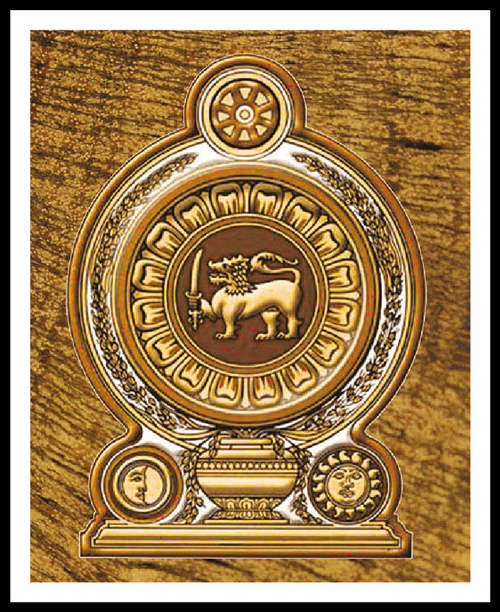
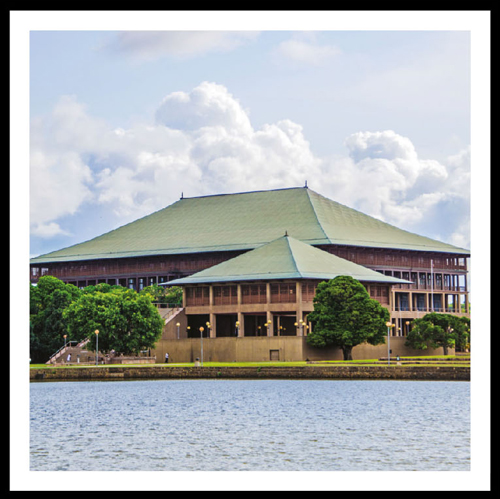

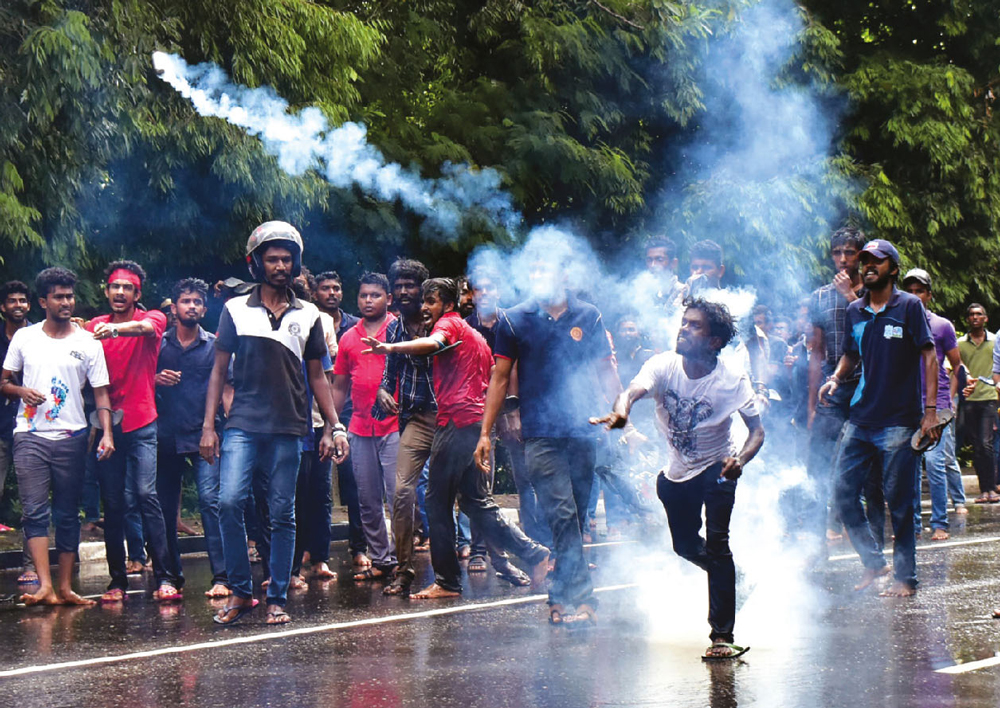
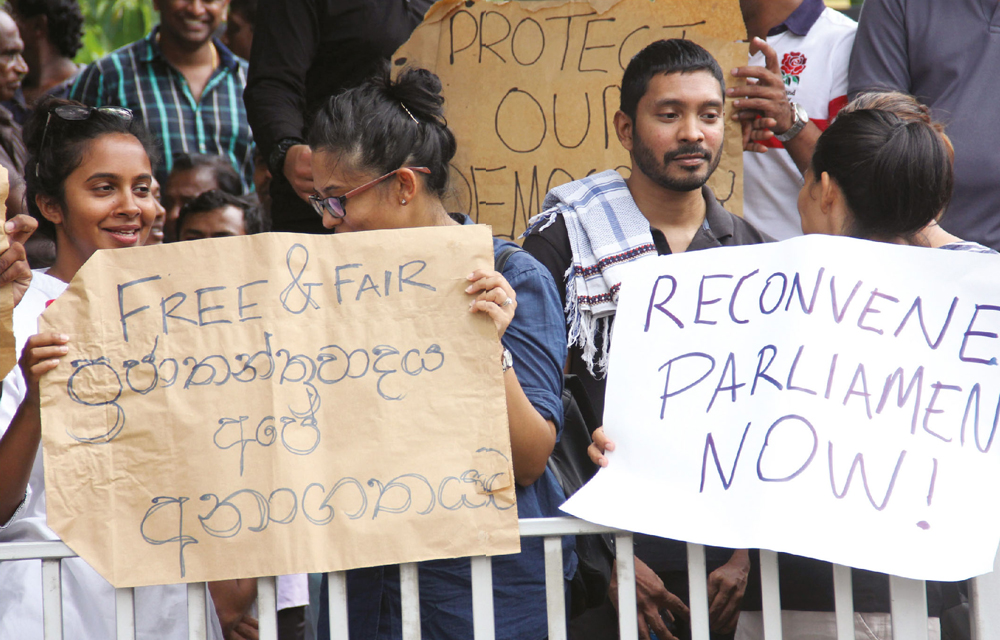
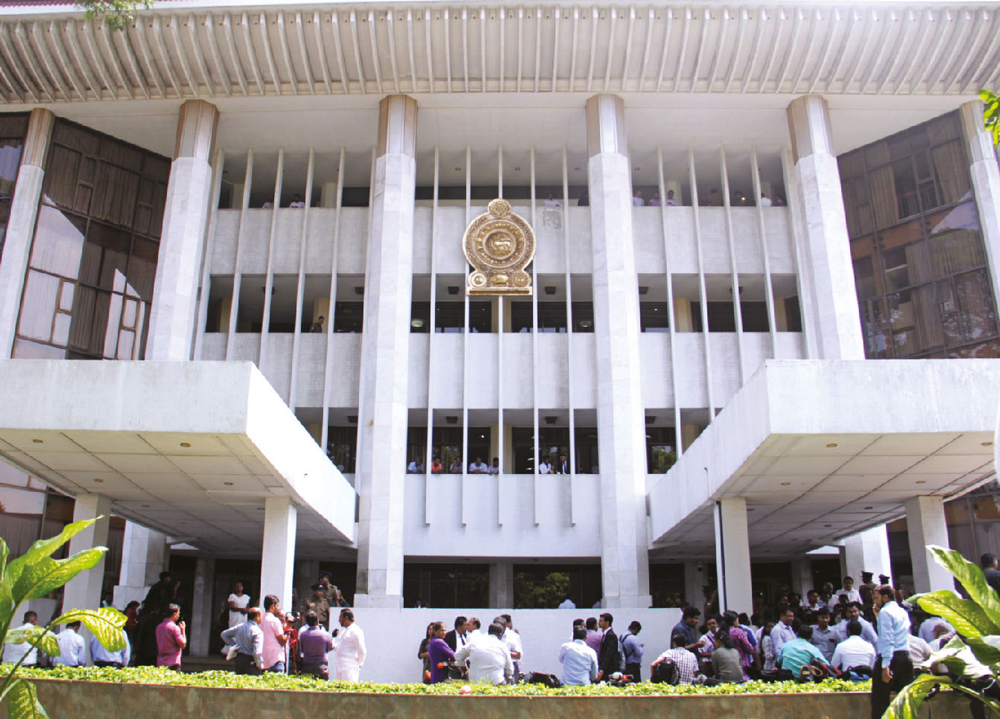
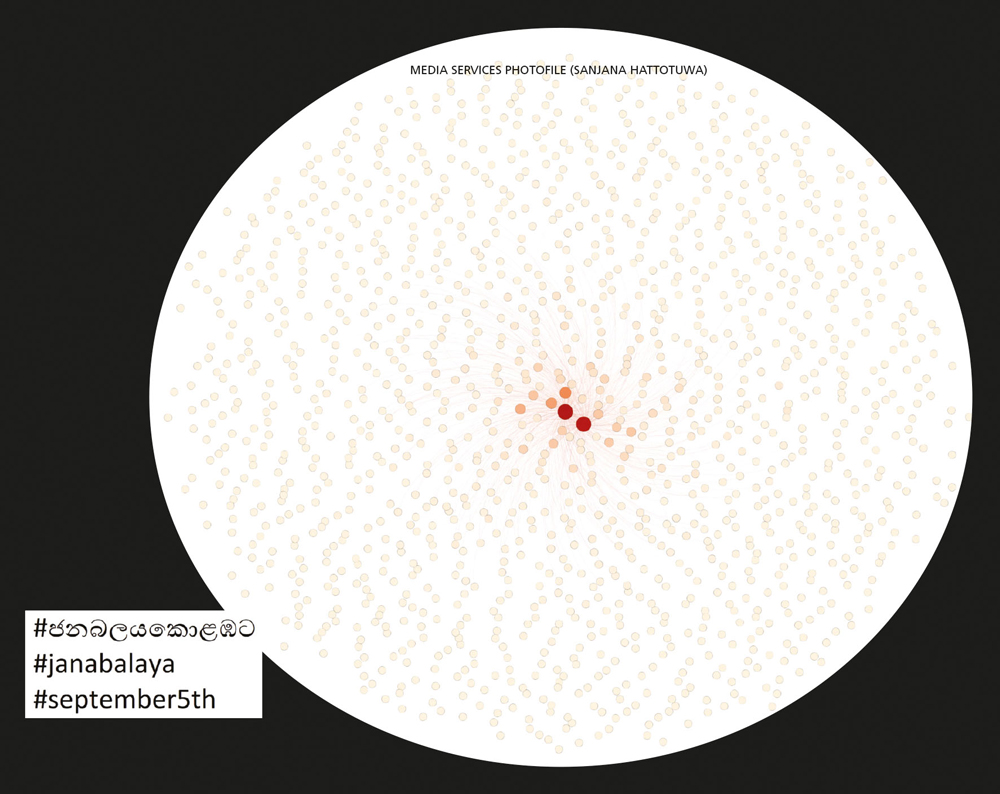
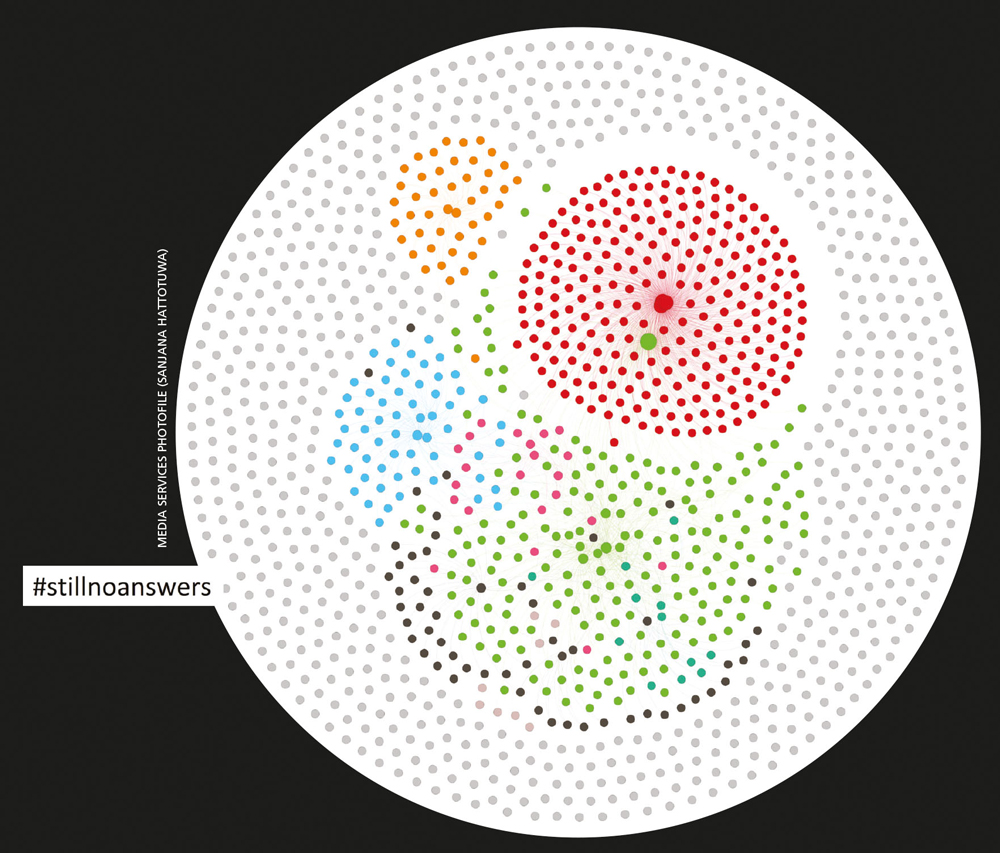
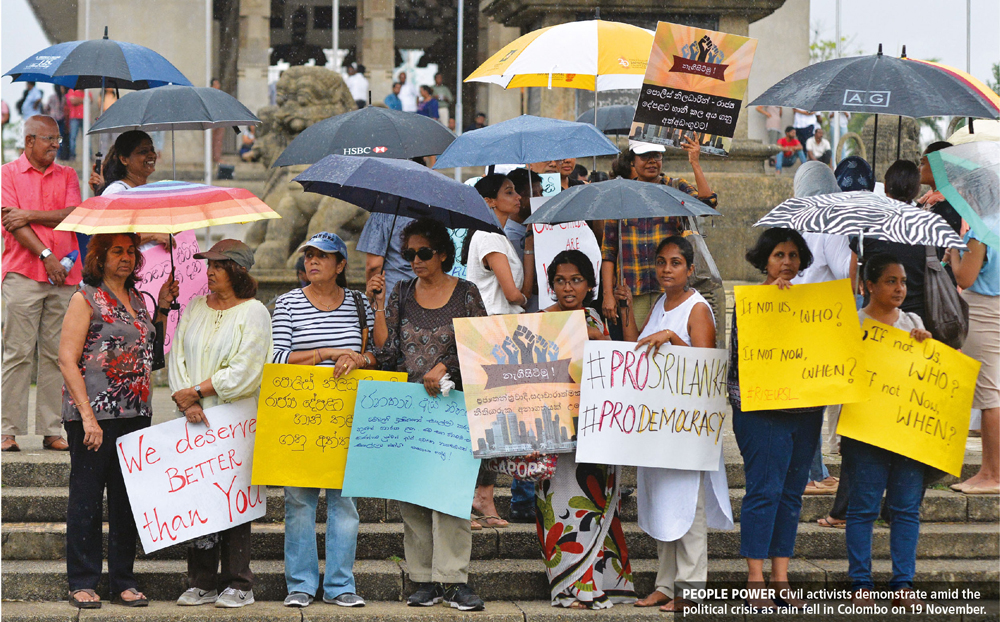
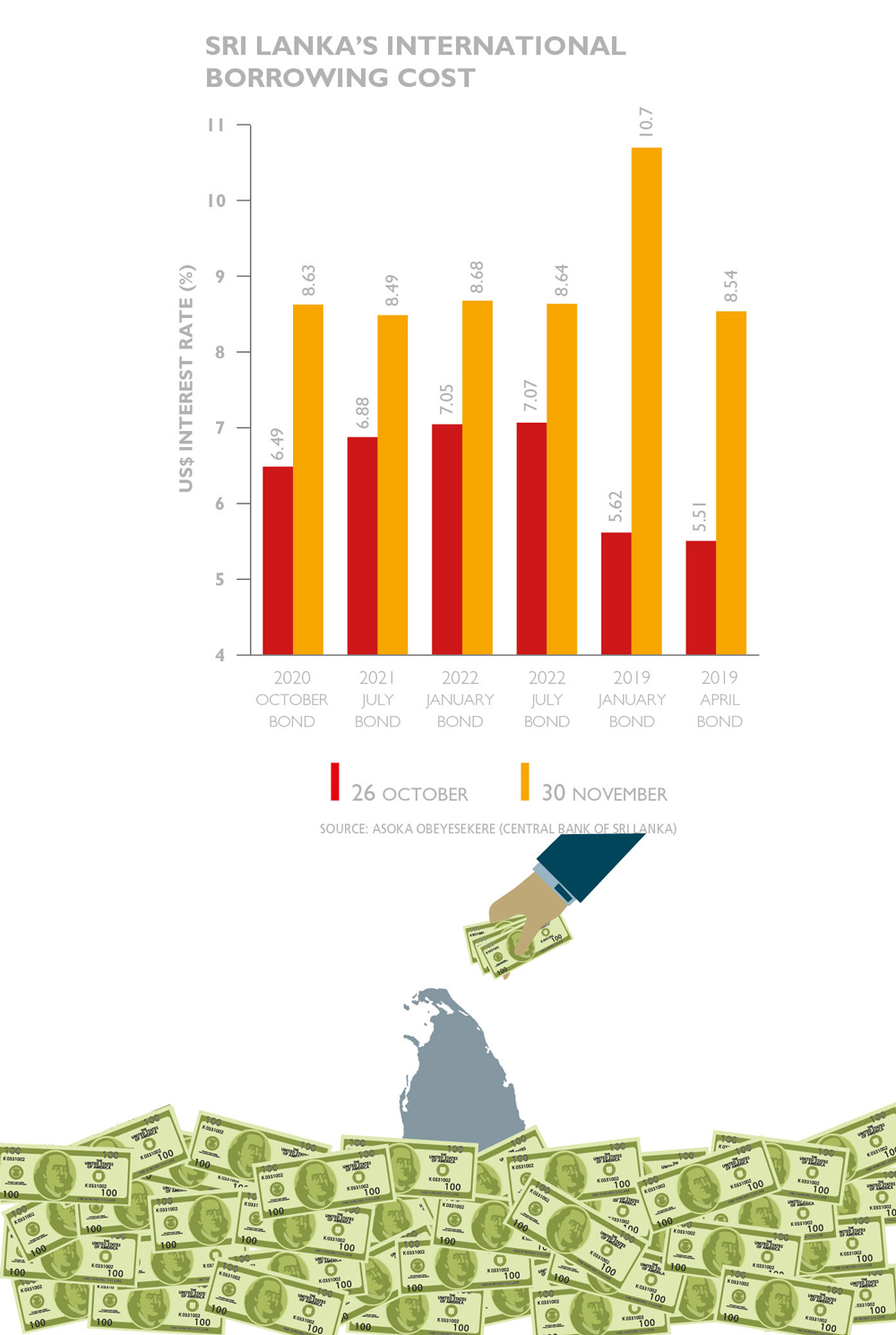
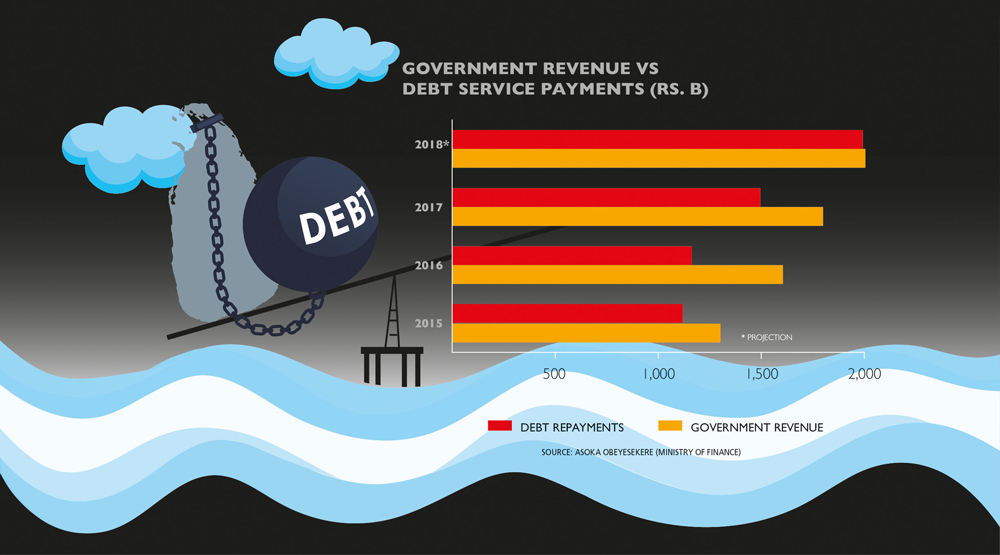


Leave a comment